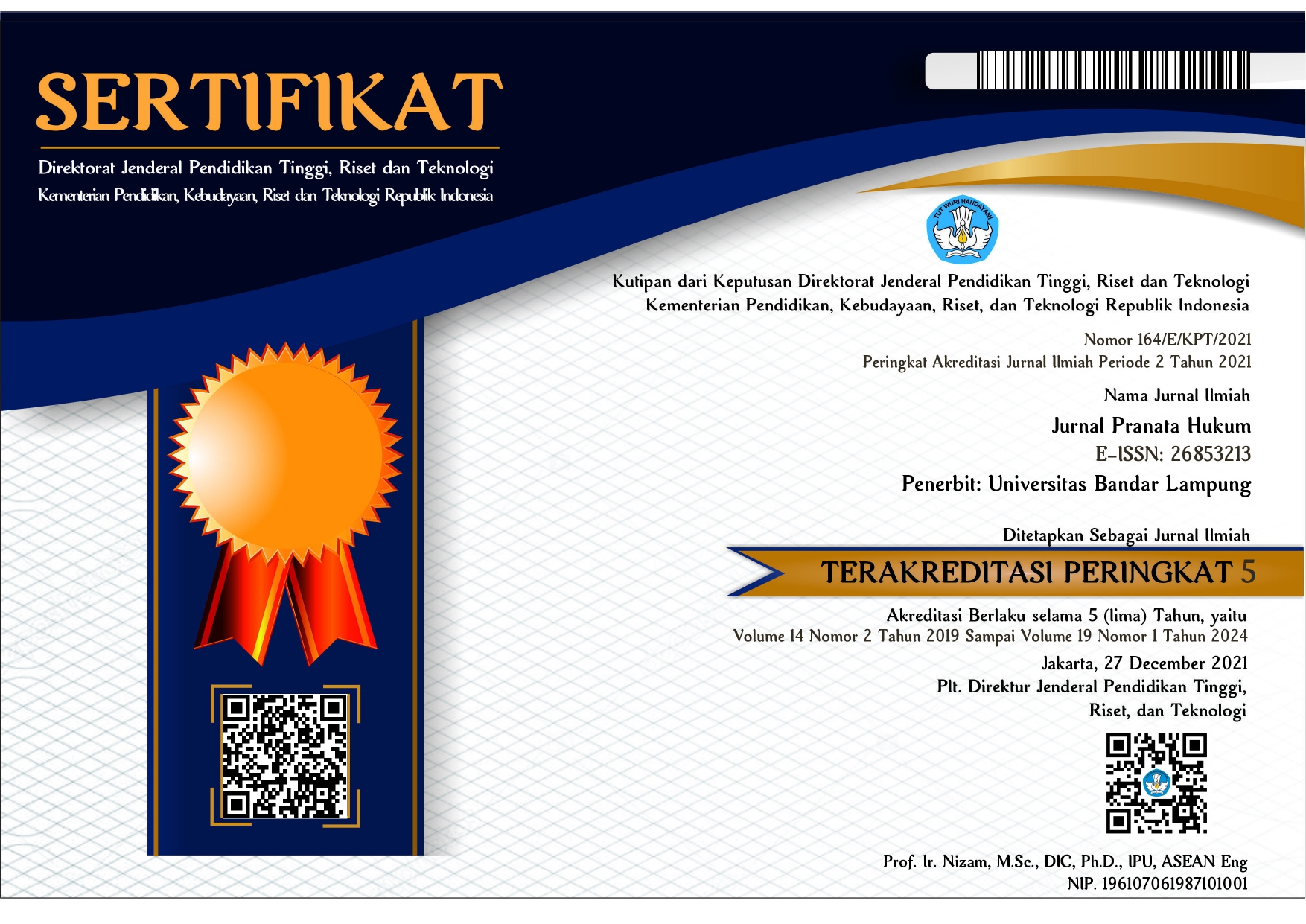REVIEW OF ISLAMIC LAW REGARDING ON CONFISCATION OF ASSETS RESULTING FROM CRIMINAL ACTS OF CORRUPTION
DOI:
https://doi.org/10.36448/pranatahukum.v20i1.378Keywords:
Corruption, Asset Confiscation, State Financial LossesAbstract
Corruption is an urgent problem that must be addressed immediately in order to achieve healthy economic growth. Various records show an increase and development of corruption models that occur. The mechanism for enforcing the law on corruption is something that must be considered because it ensures its implementation is correct, fair, there is no arbitrariness and no abuse of power. Corruption crimes when viewed from Islamic criminal law are included in jarimah. Jarimah or Jinayah comes from the word jarama-yajrimu-jarimatan, which means "to do" and "to cut", and is specifically used limited to "sinful acts" or "hated acts". The problem approach in this study uses a normative legal approach and an empirical legal approach.Normative Legal Research is a research method carried out by analyzing library materials or secondary data consisting of legal texts, court decisions, official documents and other legal literature..The mechanism for confiscation of assets resulting from corruption is currently based on Article 18 letter (a) of Law Number 31 of 1999 which was later updated through the provisions of Law Number 20 of 2001 concerning the Eradication of Corruption (UU PTPK). Meanwhile, in the context of efforts to return assets, it can be done through a civil lawsuit mechanism, which is regulated in Article 32 to Article 38 of Law Number 31 of 1999 which was updated through Law Number 20 of 2001 concerning the Eradication of Corruption. It is hoped that in the formulation policy regarding the confiscation of assets resulting from corruption, it will be guided by and refer to the civil forfeiture system used in the United Nations Convention Against Corruption in returning assets resulting from corruption by providing an obligation to reverse the burden of proof to the suspect (defendant). So that the civil lawsuit facility becomes a very effective means in order to return state losses.
Downloads
Downloads
Published
Issue
Section
License
Copyright (c) 2025 PRANATA HUKUM

This work is licensed under a Creative Commons Attribution-ShareAlike 4.0 International License.
All articles published in the Pranata Journal are licensed under the Creative Commons Attribution-ShareAlike 4.0 International License (CC BY-SA 4.0). This license allows others to share, copy, distribute, adapt, and build upon the work, even for commercial purposes, as long as appropriate credit is given and derivative works are licensed under the same terms.




